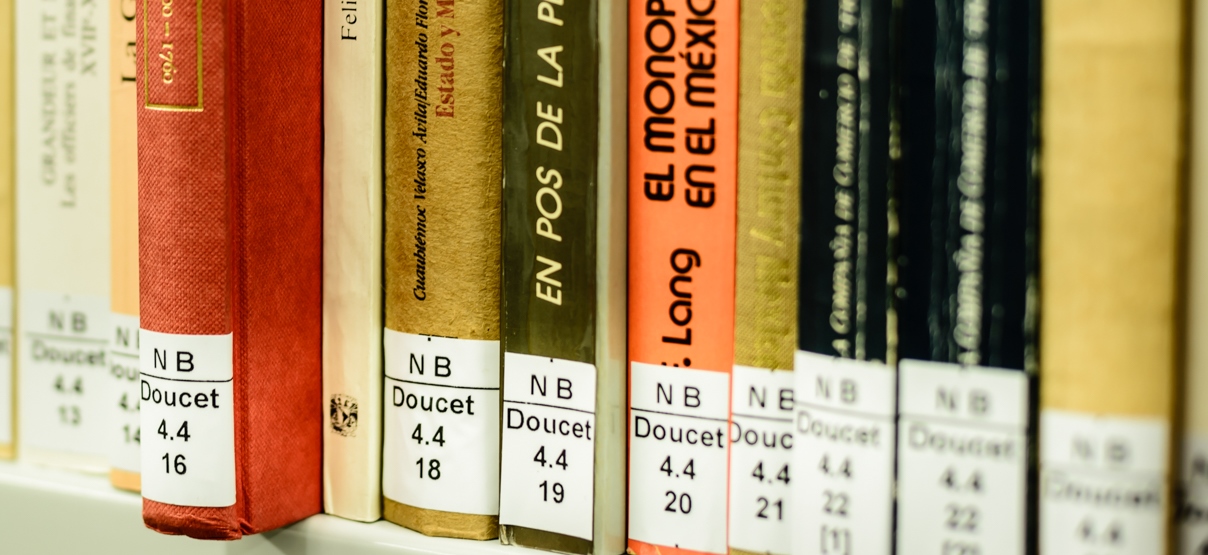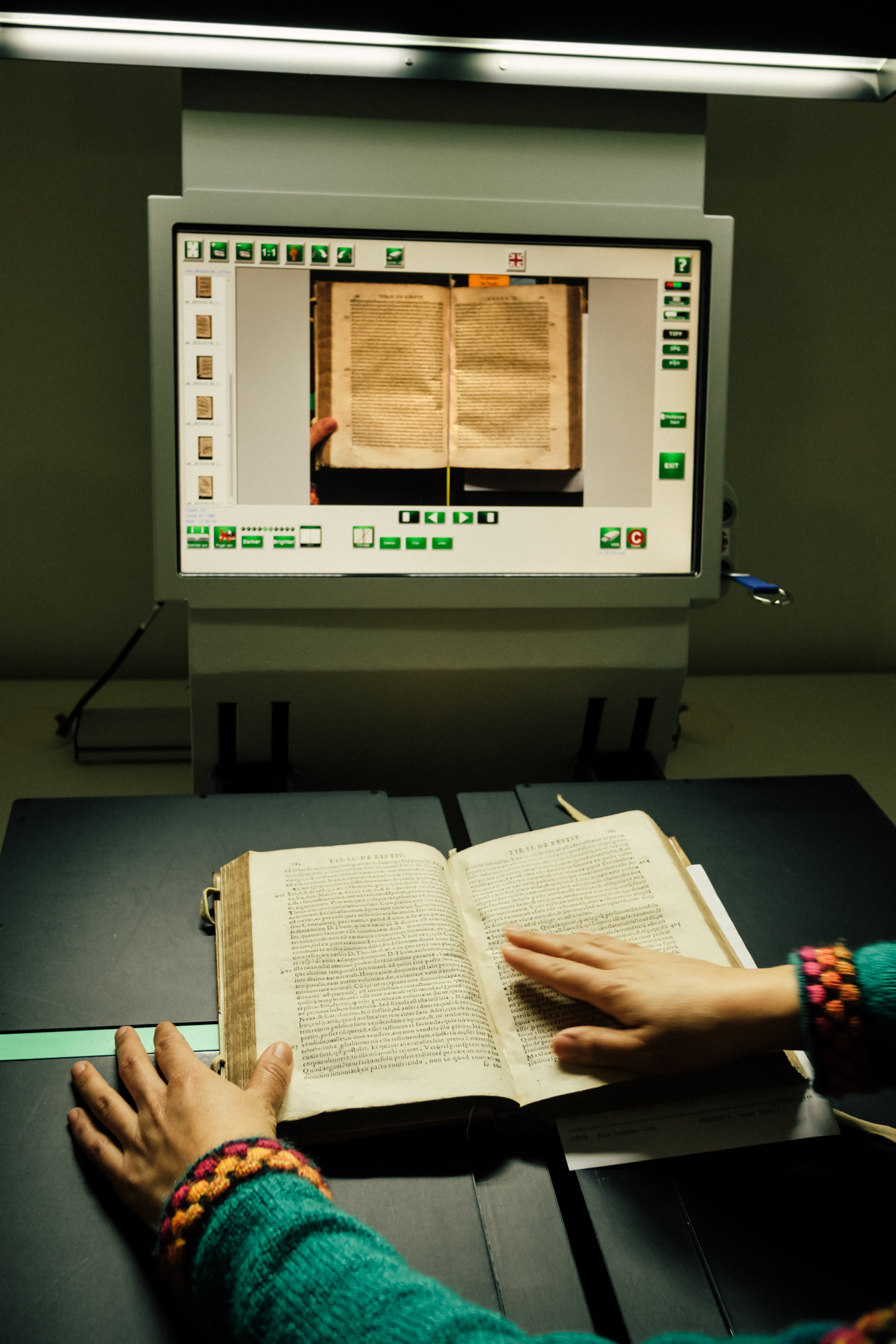From the department of Historical Regimes of Normativity at the Max Planck Institute for Legal History and Legal Theory

Gastón Doucet: un legado que trasciende el tiempo y el espacio
Esta pieza plantea un recorrido por la trayectoria de Gastón Doucet, destacado historiador del derecho indiano, con la intención de difundir su obra y presentar las dos colecciones que formó, su biblioteca es parte del acervo del Instituto Max Planck de Historia y Teoría del Derecho, su colección documental se encuentra en el Archivo Nacional de Bolivia.

“…impressed by the extent to which the living conditions … of employees could be shaped by companies.”
An interview with PhD candidate Tim-Niklas Vesper

The Specter of AI-Generated Historical Documents
We are witnessing how AI can generate incredibly accurate, natural sounding, and grammatically correct text. It also can create convincing images that mimick the texture, damage, and the colours of old photographic paper. But how long until it starts creating entirely realistic historical documents, complete with authentic-looking text? And what will the implications be for historical research? It’s time to prepare for this new era of AI-generated historical content.

Das digitale Nadelöhr: Die Arbeit an einer digitalen Edition im Projekt „Die Schule von Salamanca“
Nicht zum ersten Mal befindet sich das Vermitteln und Speichern von Wissen im Umbruch: was nicht im Internet abrufbar ist, droht, in Vergessenheit zu geraten. Das gilt auch für historischen Quellen. Deshalb arbeitet das Projekt „Die Schule von Salamanca“ an online-Editionen und einem Nachschlagewerk, welche über die Projektwebseite offen zur Verfügung stehen. Ein Prozess, der auch unser eigenes Lernen über die digitale Welt und unsere Sicht auf den Forschungsgegenstand beeinflusst.
About Us
Legal History Insights is a blog about legal history, created by the researchers, guests and affiliated researchers of the department of Historical Regimes of Normativity at the Max Planck Institute for Legal History and Legal Theory.

 This work is licensed under a
This work is licensed under a 